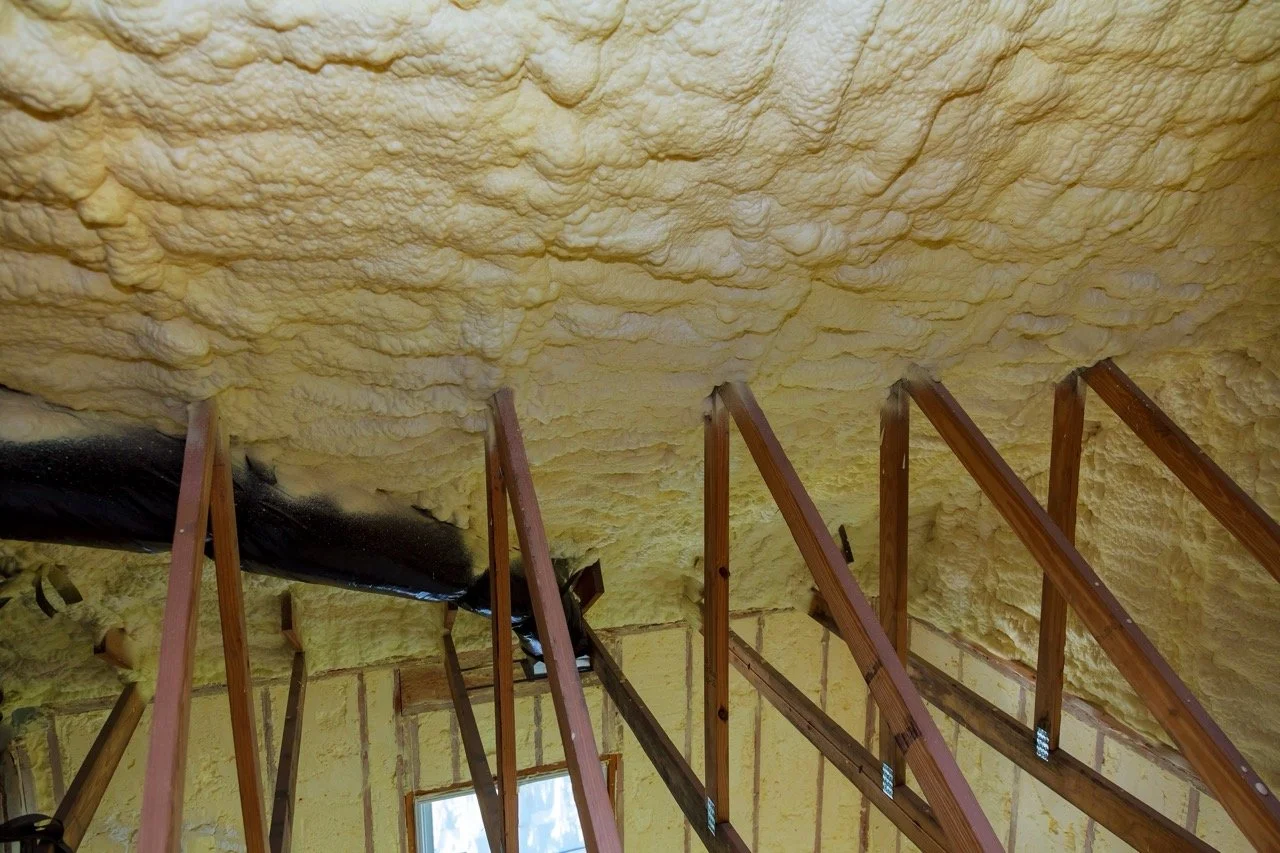Spray Foam Roof Insulation: Enhancing Durability and Energy Efficiency
Did you know that up to 25% or more of your heat may be escaping through your roof? Installing adequate insulation to your roof can keep you and your family comfortable while significantly reducing monthly energy bills. Some of the most common types of insulators used in roofs are fiberglass, cellulose, and spray foam. The latter is gaining popularity because of its durability and energy efficiency.
In this post, we're going to discuss the benefits of spray foam roof insulation.
What is spray foam insulation?
Spray foam insulation is sprayed onto the desired surface while in liquid form: for a rooftop, the underside of your home's roof sheathing. Once it's applied, the foam expands and hardens, sealing all gaps and cracks to form an airtight insulating barrier. Spray foam insulation can be used in many other places, including your walls, attic, crawlspace, or basement.
There are two main types of spray foam insulation:
Open-Cell Spray Foam - Open-cell spray foam is lighter and less dense. It is less expensive but has less thermal resistance than closed-cell spray foam.
Closed-Cell Spray Foam - Closed-cell spray foam is dense, resistant to water and moisture, and has a high thermal resistance.
Both open or closed-cell spray foam are used for roofs, and the right choice for your home may depend on the roof's condition, the climate you live in, and other factors.
Spray Foam Roof Insulation: Energy Efficiency
Heat loss through the roof is a main source of energy loss in a home and installing spray foam insulation is one of the best things you can do to increase your home's energy efficiency.
Let's take a look at why spray foam makes such an effective insulator:
High R-Value - The R-value of an insulator measures its thermal resistance or resistance to heat flow. The higher the R-value, the more effective a material is at insulating. Closed-cell spray foam has a very high R-value at R-6 to R-7 per inch, whereas open-cell spray foam is around 3.5 per inch.
Airtight Barrier - When spray foam insulation expands, it fills and seals all gaps and cracks in the cavities where it is directly applied. This creates an airtight barrier that stops drafts and air leaks.
Cost Savings - Spray foam insulation reduces energy consumption, reduces greenhouse gas emissions, and can save you money on heating and cooling costs.
Spray Foam Roof Insulation: Enhanced Durability
Your roof has to withstand the elements 24/7, enduring extreme weather, storms, temperature changes, and freeze/thaw cycles. Your insulation's main job is to resist heat flow and keep you comfortable, no matter the weather outside. However, spray foam insulation can also help protect your roof and potentially extend its lifetime.
Let's take a look at how spray foam insulation can enhance your roof's durability:
Structural Reinforcement - Spray foam insulation adheres to the roof's surface, creating a strong, protective layer that can withstand strong winds, snow accumulation, or storms.
Waterproofing - Precipitation and high humidity can cause roof structures to rot or grow mold and mildew. Spray foam insulation, particularly closed-cell spray foam insulation, is water resistant, preventing unwanted moisture infiltration.
Lifespan - Spray foam insulation is highly durable. When installed properly, it can last up to 100 years!
Spray Foam Roof Insulation: More Benefits
Let's take a quick look at some other benefits of spray foam insulation:
Improved Air Quality - Spray foam insulation's airtight seal enhances indoor air quality by preventing the infiltration of dust, pollen, and pollutants from outdoor air. Spray foam's moisture resistance and high R-value help keep your home dry, preventing the growth of mold and mildew, which can cause a variety of health problems, including respiratory issues.
Sound Barrier - Spray foam can be an effective sound barrier.
Pest Control - Outdoor pests such as insects and rodents often try to get into our homes and can be attracted to some forms of insulation. Spray foam insulation is a hard surface that can help prevent these pests from getting into your home.
Spray foam is one of the most effective insulators available. The team at Great Canadian Insulation installs spray foam in various settings, including rooftops, walls, attics, basements, and more. Contact us today for a free estimate!

